4 Biblical Lessons in Netflix's Hillbilly Elegy
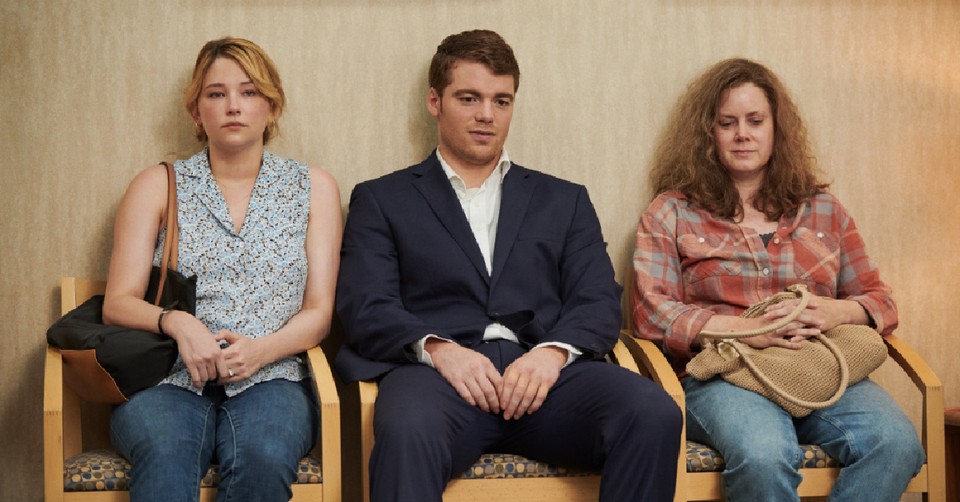
J.D. is a young boy not unlike most other boys in the ‘90s. His favorite quarterback is Joe Montana. He collects sports cards. He plays video games on a Game Boy.
But J.D.’s family is anything but typical. His mother is addicted to opioids. His family has a history of verbal abuse. His grandfather was an alcoholic. J.D.’s mother grew up in an unstable home – and he’s growing up in one, too.
With good grades, J.D. would be destined for college. Yet due to his family’s history – and his mom’s drug habit – J.D. seems more designed for a life of hopelessness.
Will anyone save him?
The Netflix original film Hillbilly Elegy (R), based on the bestselling book, tells the story of J.D. Vance as he overcomes a broken mom to attend college and then law school thanks to the assistance of a tough-nosed grandmother. It stars Gabriel Basso and Owen Asztalos as Vance, Amy Adams as his mother, and Glenn Close as his grandmother. Ron Howard directed it.
It’s rated R for extensive language and drug content, but nevertheless offers biblical lessons about life, sin and second chances. (Try ClearPlay or VidAngel if you need the film filtered.)
Here are four biblical lessons in Netflix's Hillbilly Elegy:
Photo courtesy: ©Netflix
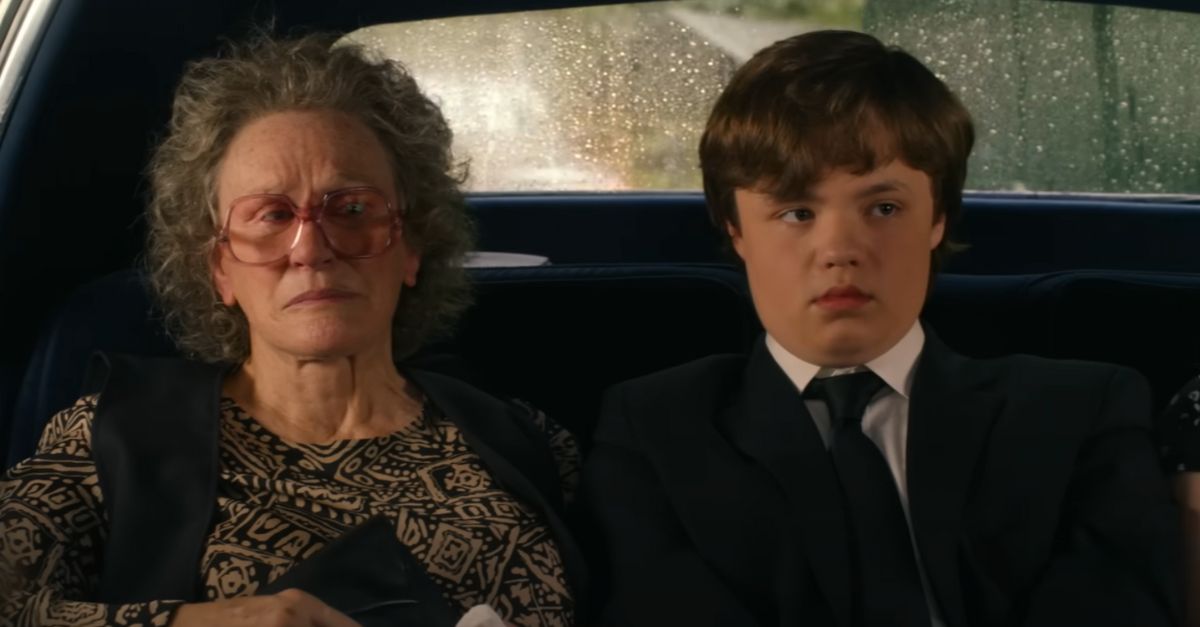
1. Family Is the Foundation
Family, as designed by God, is the first and most fundamental foundation of society. But in Hillbilly Elegy, we see what happens when that foundation crumbles.
J.D. sees his mother grow addicted to drugs and then lose her nursing job. He watches as she’s taken into custody after attempting suicide. He sits helplessly as she speeds recklessly down the road, threatening to kill them both during a fit of rage. He tags along as she changes boyfriends and homes multiple times, never settling down. He’s even forced to urinate in a cup so she can cheat and pass a drug test.
You’re tempted to blame her for every family problem, but then you learn that she, too, grew up in an unstable home, with an abusive, alcoholic father. As a child, she even watched as her own mother tried to set her dad on fire.
Hillbilly Elegy is a warning of what can happen when a family isn’t built the way God intended -- and when dads and moms abdicate their responsibilities.
Instead of love, J.D. receives rage. Instead of stability, he faces a daily litany of chaos. His childhood innocence vanishes long before he reaches his tween years.
It’s tough to watch, but it made me want to love my kids a little more and to ensure they receive everything their souls need.
Photo courtesy: ©Netflix
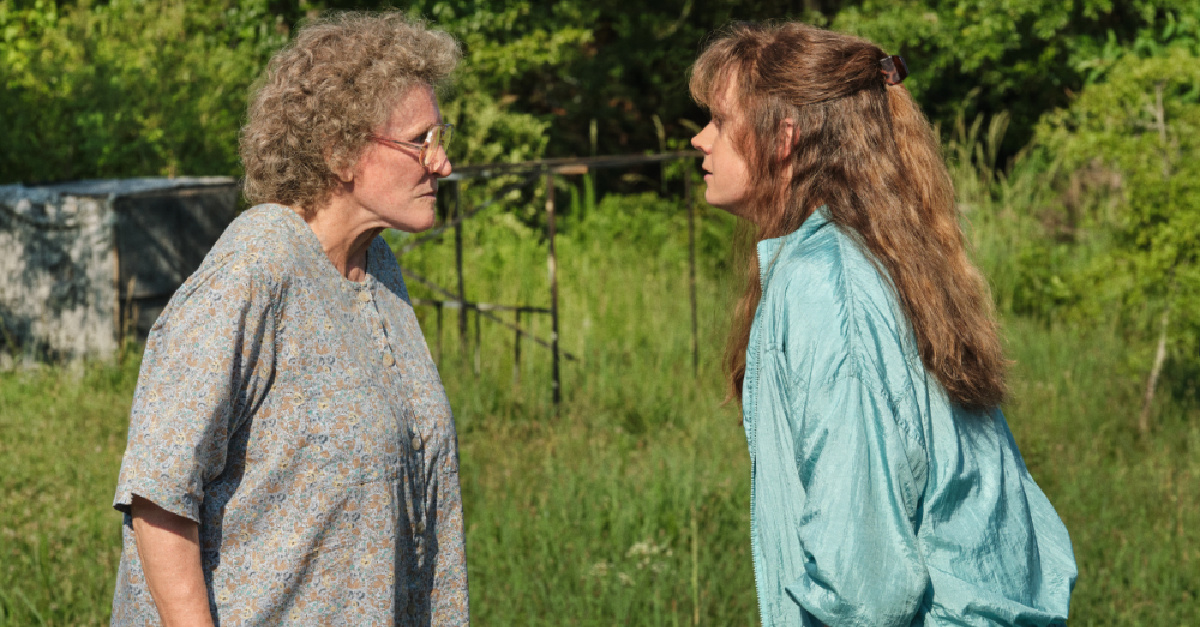
2. Sin Is Deadly … and Addictive
The Bible describes sin as a trap that’s ready to ensnare those who give into temptation.
J.D.’s mother – when sober – wants to quit drugs. She longs for a stable life. She desires to be the mom J.D. needs. “When I get out of here, I’m going to make a real home for us,” she tells him during one rehab stint. “... It’s going to be different now.”
But like a helpless animal caught in a snare, she can’t do it by herself. During one disturbing scene, J.D. goes out and purchases food, only to return and catch her with a needle in her arm.
Addiction ruins lives. It destroys families. And if not stopped, it can wreck multiple generations. The story reminds us of the well-known adage, “Sin will take you farther than you want to go, keep you longer than you want to stay, and cost you more than you want to pay.”
Before we cast stones, though, we should realize: Bev’s story is our story. Our sin may not be public, and it likely didn’t end up on a movie screen. Yet all sin is addictive. All sin is like a snare. And apart from an intervention from a loving God, we are stuck in a deadly trap, desperately needing a hero.
Photo courtesy: ©Netflix
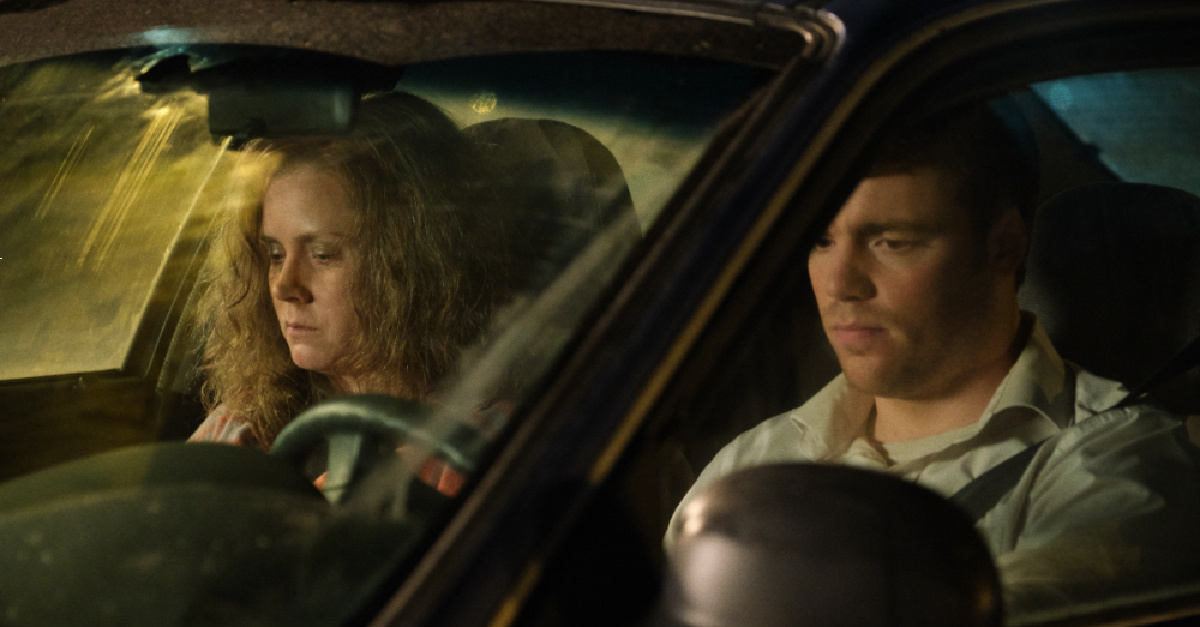
3. Sometimes, Tough Love Is Essential
Tough love is the act of showing someone love through discipline. It can be painful, but it’s for their own good.
Hillbilly Elegy is a modern-day parable about tough love – partially involving Bev, but mostly involving J.D., a boy who appeared headed toward a life of drugs and poverty before his grandmother intervened.
The film portrays J.D. as hanging with the wrong crowd and sliding into a culture of hopelessness, laziness and drugs – until Mamaw (Glenn Close) comes to the rescue. She pulls him out of his mother’s house – over the objection of Bev – and raises him on her own. Her “tough love” boot camp involved chores, much-needed tongue-lashings, and a daily requirement to get his homework done.
“I don’t care if you hate me,” she tells him. “I ain’t in it for popularity.”
Eventually, he turned his life around to graduate from high school and then college.
“If there was a turning point, it was Mamaw’s intervention in my life,” the real-life J.D. Vance told Crosswalk.
Of course, tough love is biblical. God cast Adam and Eve out of the garden – for their own good. He disciplined the Hebrews – for their own good. He disciplines us, too – for our own good. It seems unpleasant at the time but “produces a harvest of righteousness and peace for those who have been trained by it” (Hebrews 12:11).
Photo courtesy: ©Netflix
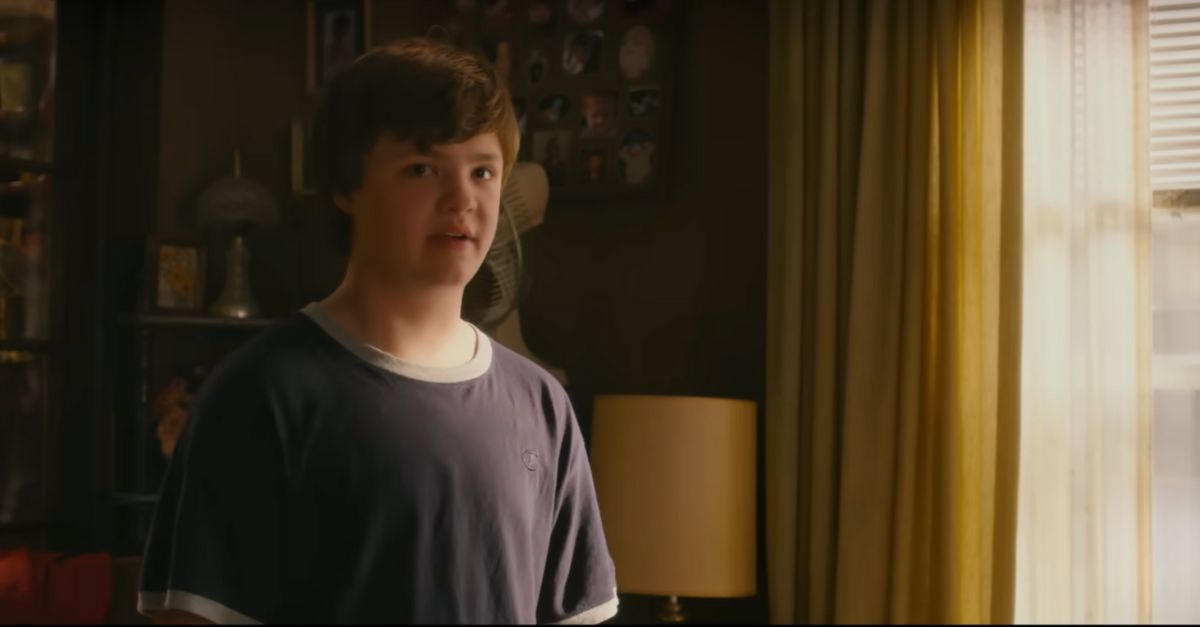
4. We All Need a Second Chance
Hillbilly Elegy is filled with tragedy, but if you stick around to the end, it has a happy ending. J.D. graduated from high school, then college, and then law school (Yale). Bev, too, turned her life around, and has been sober for six years.
Mamaw refused to give up on J.D. And during adulthood, J.D. and his sister, Lindsay, refused to give up on their mom.
“I can’t defend her. But I’m trying to forgive her,” Lindsay says in the film about her mother.
This message about second chances is rooted in Scripture, from God forgiving a well-known murderer (Moses) and adulterer (David), to Jesus calling as his followers a hated tax-collector (Matthew) and a persecutor of Christians (Paul). We all are desperate and hopeless without God’s grace and mercy.
Hillbilly Elegy isn’t faith-based, yet it depicts a religious family that seems to have lost all hope.
“It's a story about a boy’s redemption, and also resilience,” Vance told Crosswalk. “You can't have redemption and resilience unless you have tragedy, and the struggle that comes before it. … Mom [today] is sober. She's got a great relationship with my kids – her grandkids. People are just doing well. I think that, to me, is the most important thing. It's not just tragedy upon tragedy. … At least for us [it is a] tragedy that has led somewhere much more hopeful and much more positive.”
Hillbilly Elegy is rated R for language throughout, drug content and some violence. (Details: more than 100 coarse words, including 30-plus f-words. It contains no nudity.)
Entertainment rating: 3 out of 5 stars
Family-friendly rating: 1 out of 5 stars
Photo courtesy: ©Netflix
Michael Foust has covered the intersection of faith and news for 20 years. His stories have appeared in Baptist Press, Christianity Today, The Christian Post, the Leaf-Chronicle, the Toronto Star and the Knoxville News-Sentinel.
Listen to Michael's Podcast! He is the host of Crosswalk Talk, a podcast where he talks with Christian movie stars, musicians, directors, and more. Hear how famous Christian figures keep their faith a priority in Hollywood and discover the best Christian movies, books, television, and other entertainment. You can find Crosswalk Talk on LifeAudio.com, or subscribe on Apple or Spotify so you never miss an interview that will be sure to encourage your faith.
Originally published July 17, 2024.







